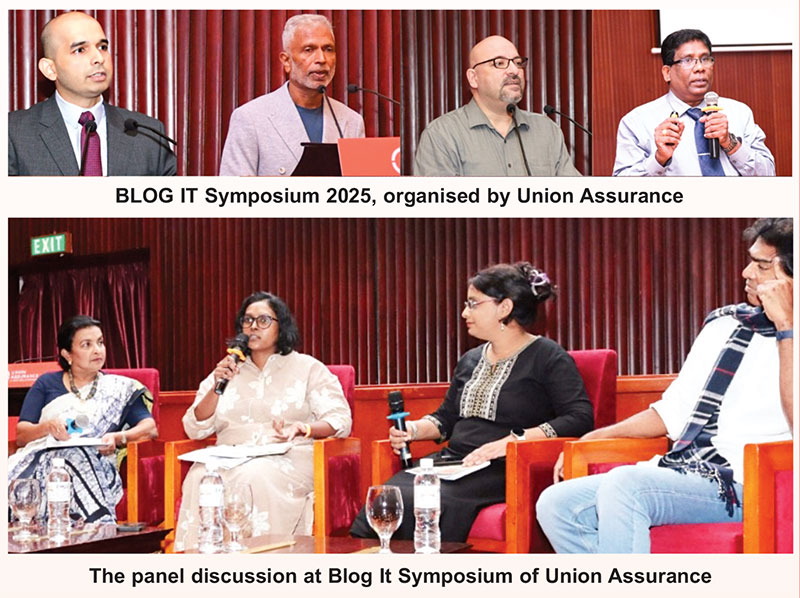Business
Indian companies likely to get nod to list in seven countries

BY S VENKAT NARAYAN,
Our Special Correspondent
NEW DELHI, October 17:
India is set to notify seven countries and the Gujarat International Finance-Tec (GIFT) City where Indian companies can go public. By easing several norms to facilitate the process, the government is paving the way for a global listing by the likes of Reliance Jio, the Life Insurance Corporation (LIC) and Indian start-ups.
The Ministry of Corporate Affairs (MCA) and the Department of Economic Affairs have agreed to do away with the contentious clause of dual listing, which required a company to list in India as well as overseas. As a result, a company can directly list in one of the seven markets, including the US, the UK and Japan.
While the list will be expanded later, Hong Kong is a notable exclusion at present and comes in the midst of India’s border tension with China. Several companies have opted to list in Hong Kong, which is a financial hub in the region.
Exchanges operating in the International Financial Centre at GIFT City in Gujarat, which have tie-ups with overseas bourses, can facilitate the stock being traded abroad as well, The Times of India quoted sources as saying. For instance, if the National Stock Exchange (NSE) or the Bombay Stock Exchange (BSE) ties up with the Singapore Stock Exchange (SGX), it can help shares of an Indian company to be traded on the exchange in the GIFT City as well as Singapore.
“It will really help start-ups which may not be profitable but are looking to raise money and list at a premium,” said a market player.
Allowing global listing of Indian entities is seen as a major change in government stance as policy makers were earlier wary of letting companies tap global capital markets directly.
As a first step the Narendra Modi administration has amended the Companies Act, which will be followed by umbrella guidelines by the Finance Ministry, and rules for unlisted companies by MCA and those for listed entities by the Securities and Exchange Board of India (SEBI).
The revenue department is separately going to address the tax issues as the government is seeking to ensure the first listing by an Indian entity in the early part of next year.
To facilitate global listing, the government will prescribe norms in a way that the company has to be either profitable, or report operating profits during the preceding three years or should have paid-up capital, funds in the security premium account and tangible and intangible assets above a specified value.
Besides, the proposal piloted by MCA is also expected to ensure that there is no insistence on premium listing on foreign exchanges and a standard listing will do.
Sources said the ministry has already held discussions with investment bankers, Indian companies as well as bodies such as US-India Business Council. Buoyed by the amendment, foreign exchanges are courting Indian companies as well as the government to list some of the companies abroad in what will be seen as a powerful message that India is open to doing business with the world.
In recent years, several Chinese companies have listed abroad.
Business
Russell’s Tea partners with Sri Lanka’s indigenous community

Allocates 4% of global sales for their socio-economic empowerment
Sri Lankan tea exporter Russell’s Tea (Pvt) Ltd achieved a historic milestone by signing a Memorandum of Understanding (MOU) to allocate 4% of its international sales revenue from ‘Russell’s Ceylon Ancestral Herbal Infusions’ toward the sustainable development of Sri Lanka’s indigenous community.
The company simultaneously launched five premium tea ranges—Ceylon Health and Wellness Teas, Ceylon Ancestral Herbal Infusions, Ceylon Fine Teas, Ceylon Organic Specialty Teas, and Ceylon Artisan Teas—to the global market, beginning with the UAE.
The MOU, formalizing the 4% revenue pledge, was signed by Russell’s Tea Director Jehan Perera and Vedda leader Uruwarige Wannila Aththo during a ceremony at Colombo’s Amari Hotel on Saturday. This agreement marks the first time the indigenous community will receive dollar-denominated compensation for sharing their ancestral knowledge of herbal remedies, which contributed to the development of Russell’s Ceylon Ancestral Herbal Infusions.
“Our R&D team drew significant inspiration from the Vedda community’s traditional wisdom on natural health benefits,” said Jehan Perera. “We believe it is our responsibility to reciprocate by supporting their socio-economic growth through this initiative.”
He added that the company plans to export the Community’s goods like wild honey in the future, further integrating the community into global markets.
Russell’s Tea has already secured partnerships with major UAE retailers, including the Lulu supermarket chain, with plans to expand across Gulf Cooperation Council (GCC) countries and Europe. All products, targeting luxury and tourism sectors, will be available in leading supermarkets by late June.
Celebrating its 38th anniversary, Russell’s Tea founder Russell Perera reflected on the company’s evolution: “From pioneering Sri Lanka’s corporate outdoor catering service to becoming a forex-earning exporter, this global launch symbolizes our commitment to innovation and national progress,” he said.
By Hiran Senewiratne
Business
Shyam takes helm at Sunshine Holdings as nephew succeeds uncle Vish in leadership transition

Under a Colombo sunset at the Taj Samudra, laughter, applause, and celebratory toasts recently marked the farewell of Vish Govindasamy, who stepped down from his executive role at Sunshine Holdings PLC after 28 years of transformative leadership.
The event, attended by business leaders, Sunshine’s senior team, and industry stakeholders, honoured his legacy as he transitioned to the Non-Executive Deputy Chairman role, while his nephew, Shyam Sathasivam, assumed the Group CEO position—a testament to the family bond steering this corporate evolution.
Sunshine Holdings announced that Govindasamy would continue in advisory capacity to ensure strategic continuity.
Govindasamy’s tenure which began in 1997 as CEO of Watawala Plantations, saw the Group expand into healthcare, consumer goods, renewable energy and dairy, while launching iconic brands such as Zesta, Watawala Tea, and Ran Kahata as well as Healthguard Pharmacy. Under his stewardship, Sunshine forged partnerships with global giants such as Wilmar and SBI Japan, earned recognition among Asia’s Best Workplaces, and championed social impact through the Sunshine Foundation for Good.
Shyam Sathasivam, Govindasamy’s nephew and successor, joined Sunshine in 2005 and has been integral to its recent growth. Having collaborated closely with his uncle for nearly two decades, Shyam emphasised his commitment to upholding the Group’s purpose-driven ethos: “Mr. Govindasamy nurtured a vision that blends business with heart. I am honored to build on this legacy, ensuring we continue to care for all stakeholders,” he stated at the farewell event.
During his address, Govindasamy observed attendees dispersed across the room and humorously underscored his attention to detail by remarking, “I kindly request everyone to assemble closer to the stage—such nuances catch my eye, a testament to my micro-management tendencies.” The lighthearted comment drew laughter while reflecting his reputed dedication to organizational precision.
Then shifting to the matter at hand and reflecting on his journey, Govindasamy acknowledged the Group’s resilience through Sri Lanka’s civil war and economic crises, expressing confidence in his nephew’s leadership: “Sunshine’s future is bright under Shyam. Our shared values and his forward-thinking approach will drive new heights,” he said.
The transition underscores a unique fusion of family trust and corporate strategy, positioning Sunshine Holdings for its next chapter.
By Sanath Nanayakkare
Business
Union Assurance is redefining financial literacy in Sri Lanka

‘Blog It Symposium’
The ‘Blog It Symposium’ hosted by Union Assurance on March 27 at the BMICH, had drawn writers, students and professionals alongside literary giants like Ashok Ferrey. The event was less a corporate gathering and more a cultural movement, symbolising a quiet revolution in Sri Lanka’s journey toward financial empowerment.
Financial literacy, often confined to jargon-filled pamphlets or intimidating technical writeups, has found an unexpected ally in storytelling with Union Assurance’s Blog It initiative, launched years prior, which recognises a universal truth: people connect with stories, not statistics. By inviting bloggers and writers to explore themes like life insurance, savings, and generational wealth through personal narratives, the initiative transforms complex concepts into relatable tales. A mother’s account of securing her child’s education amid economic uncertainty, a young entrepreneur’s journey from debt to stability, or a retiree’s challenges in the rest of his or her life were the seeds of stories that resonated deeply with the writers in the audience especially because they are writing for a society whose financial planning is often overshadowed by day-to-day struggles.
Ashok Ferrey, the keynote speaker asked the audience,” Why do we write? “We write,” he suggested, “to express ourselves in ways that evade the rigid pathways of ordinary consciousness.” Imagine, he said, slipping into a disguise to go to a fancy dress party; that lets you be someone else. Writing, in Ferrey’s vision, operates similarly—it is a costume party for the psyche. “When we write, we shed the constraints of our daylight selves. The keyboard or pen becomes a mirror that reflects not who we are, but who we might invent,” he said.
“These aren’t just blogs,” remarked Lal Medawattegedara, novelist and symposium panelist. “They’re survival guides written in the language of the people.”
Rather than lecturing, Union Assurance has created a platform for dialogue. Winning entries, published in newspapers and shared across social media, turns anonymous writers into local influencers. A gem merchant from Ratnapura, whose blog on gem buying and selling would go viral, encouraging young people in the area to follow suit. A Colombo college student’s poem about her family’s medical debt would inspire a community savings drive. “Financial literacy isn’t about telling people what to do,” said Union Assurance CMO Mahen Gunarathna. “It’s about giving them the tools to write their own futures.”
As the 2025 symposium concluded, the message was clear: financial literacy is not a solo journey but a shared narrative.
In a world where money talks, Union Assurance has mastered a profound lesson: sometimes, the most powerful currency is a story well told. Sri Lankans are not just learning about finances—they’re rewriting their financial destinies with the support of Union Assurance.
By Sanath Nanayakkare
-

 Sports2 days ago
Sports2 days agoSri Lanka’s eternal search for the elusive all-rounder
-

 Features6 days ago
Features6 days agoCelebrating 25 Years of Excellence: The Silver Jubilee of SLIIT – PART I
-

 Business6 days ago
Business6 days agoCEB calls for proposals to develop two 50MW wind farm facilities in Mullikulam
-

 Business4 days ago
Business4 days agoAIA Higher Education Scholarships Programme celebrating 30-year journey
-

 News3 days ago
News3 days agoGnanasara Thera urged to reveal masterminds behind Easter Sunday terror attacks
-

 Features6 days ago
Features6 days agoNotes from AKD’s Textbook
-

 News2 days ago
News2 days agoComBank crowned Global Finance Best SME Bank in Sri Lanka for 3rd successive year
-

 Features2 days ago
Features2 days agoSanctions by The Unpunished












